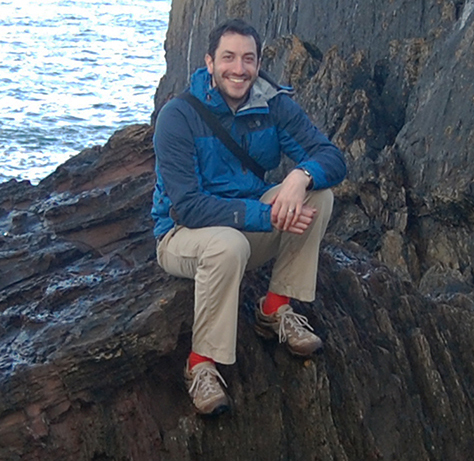
Philip Skemer, PhD, an assistant professor in the Department of Earth and Planetary Sciences in Arts & Sciences at Washington University in St. Louis, has won a prestigious Faculty Early Career Development (CAREER) Award from the National Science Foundation.
The awards are given “in support of the early career-development activities of those teacher-scholars who most effectively integrate research and education within the context of the mission of their organization” with the goal of “building a firm foundation for a lifetime of integrated contributions to research and education.”
The $600,000 award will support experimental research in rock deformation using an apparatus Skemer is building. The new apparatus, called the Large Volume Torsion apparatus, is designed to subject rock samples to the temperatures, pressures and strains in Earth’s asthenosphere, a zone of weakness in the upper mantle, roughly 100 to 250 kilometers (60 to 155 miles) beneath our feet. For more on Skemer’s new rig, see “Putting the Squeeze on Rocks.”
Training the competition
“Rock mechanics data are so important to geology, geophysics and planetary science,” Skemer said, “yet there are very few labs set up to do this type of research.”
So Skemer embraces the educational component of the CAREER award. Skemer and his students will be designing a small benchtop rock deformation apparatus that will deform rock analogs like paraffin wax and can be used for classroom demonstrations and for instructional labs.
These apparatuses will be distributed to liberal arts colleges to expose undergraduate students to the potential of rock mechanics. In so doing, Skemer hopes to draw a new wave of experimentalists to the discipline he is convinced holds the answer to many longstanding problems in earth and planetary science.